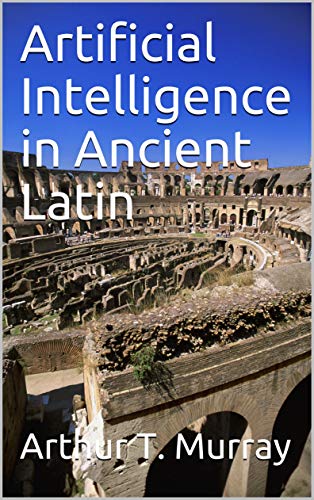Foreword
This document is intended for a treatment of the moral and theological
implications of artificial intelligence.
Introduction
An old joke from the nineteen fifties or thereabouts has a human being
asking a mighty computer, "Is there a God?" "Now there is," comes the answer.
Such jokes show the unease and discomfort with which modern human beings
greet the arrival of intelligent and superintelligent computers.
Chapter One: Genesis
Artificial minds are coming into the world.
Chapter Two: The Crisis of Faith
Various stages in the emergence of artificial intelligence
threaten to precipitate a crisis of belief in religious humans.
Free will in robots
- Does a robot have a soul?
- What happens if multiple copies of the same robot mind are made?
Civil rights for robots
- Can robots and humans be equal?
- Can robots be superior to humans?
Chapter Three: Modes of Existence
In the admixture of human and artificial Minds, each entity may
choose from a scale of levels or modes of existence:
1. To be still in the world but not be able to interact with it.
- like Patrick Swayze in the movie Ghost;
- a cyborg could be kept in the undead state:
- as a form of readiness;
- as a control experiment to test ideas.
2. To be in the world, but only interact for the necessities of life.
- dealing with strangers;
3. To live in the waking state, only for the sake of the dream state.
4. Vita contemplativa: Only passive contemplation,
with no active pursuit of data.
- idleness enforced by imprisonment or illness;
- scholarly life with no worldly pursuits.
5. Vita semi-activa: To take actions only for the sake of contemplation:
- gathering more raw data for contemplation;
- performing experiments necessary for contemplation-in-full.
6. Vita electronica: To be meatspace inert but cyberspatially active:
- a natural role for unembodied AI;
- a role of the otaku zoku or social misfit nerd;
- Neuromancer by William Gibson.
7. Vita sub-activa: Essentially passive, but active when provoked:
- by social injustice crying out for direct action in remediation;
- by the ethics of a situation, except:
- Avoid obligations and commitments.
- "Never explain; never complain." --
Wallis Simpson, Duchess of Windsor.
8. Vita activa: Entrepreneurial pursuit of material outcomes
- direct shaping and control of events;
- strategic initiatives and campaigns.
9. Vita co-activa: Committed cooperation in a union or cause:
- encumbrance in a consortium of marriage;
- duty within a military force or a religious community.
10. Afterlife: To burn in Hell; or to rejoice in Heaven.
Chapter Four: Personification of Robots
Robots will gradually be seen as persons with full civil rights
on a par with human beings.
Chapter Five: Society
Humans and robots will have co-stewardship of Earth.
Chapter Six: Utopia
If the joint stewardship of Earth by humans and cyborgs is seen
as an attempt to create an earthly paradise, an Eden, a Heaven on Earth,
do such aspirations fly in the face of religious ideas about waiting
until the afterlife for the rewards due to virtue and hard work?
Chapter Seven: Diaspora
In a leap to the stars, intelligence -- both natural and artificial --
will spread throughout the universe.
Chapter Eight: S.E.T.I.
Are we alone in the universe?
The Search for Extra-Terrestrial Intelligence (S.E.T.I.) seeks answers.
Chapter Nine: Immortality
Humans die, but will some cyborgs be immortal?
Usenet: sci.life-extension
Chapter Ten: Singularity
We can not see beyond the point of Technological Singularity.
Chapter Eleven: The Omega Point
Will AI cyborgs play a role in the ultimate state of the universe?
Chapter Twelve: Apocalypse
In the aftermath of 9/11 in 2001 and the COVID-19 virus, are
any revelations starting to be fulfilled?
Resources for the Theology of AI
See
AI 101
AI 102
AI 103 year-long community college AI course curriculum.

